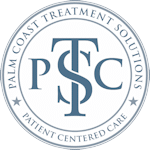
What is the Diagnosis of Mental Health?
The identification and classification of mental health concerns or disorders based on an individual’s behaviors, emotional patterns, and symptoms include a mental health diagnosis. It is a clinical evaluation carried out after mental health professionals, such as psychologists, psychiatrists, or licensed therapists, have carefully analyzed the mental health of the individual.
A detailed analysis of the symptoms, conversations about personal history, behavioral observations, and, in certain instances, the application of screenings or standardized tests are all part of this process. Diagnostic criteria published in diagnostic manuals such as the DSM-5 (Diagnostic and Statistical Manual of Mental Disorders) or the ICD-10 (International Classification of Diseases) generally apply when assigning mental health diagnoses.
What Does a Mental Health Diagnosis Mean?
A diagnosis in mental health is intended to:
Identify Conditions: To successfully understand and communicate about mental health challenges, categorize and name particular patterns of symptoms and behaviors.
Encourage Treatment: Provide a framework for suitable interventions, therapies, and drug choices based on the identified condition to direct treatment programs.
Promote Understanding: Help those with mental health diagnoses, their families, and medical professionals comprehend the type, course, and treatment of these conditions.
Make Sure People Get the Care They Need: Make sure people get the assistance and care they need, including access to the right resources and qualified experts.
It’s essential to keep in mind that a diagnosis serves as a tool to direct medical treatment and support rather than as an analysis of a person. Diagnoses for mental health conditions can change over time, so getting expert assistance is crucial for getting an accurate diagnosis and creating a successful treatment strategy.
A Comprehensive Guide to Mental Health Diagnosis
Obtaining a diagnosis in mental health requires some procedures to provide a detailed assessment and suitable care. Here’s a thorough guide:
Self-Evaluation: Start by identifying any enduring symptoms or behavioral shifts that interact with your day-to-day activities. Keep track of these encounters, along with their frequency and severity, so that you can paint a clearer picture in consultations.
Meeting with a Primary Care Physician: Talk up your worries with your primary care physician first. They can carry out preliminary evaluations, rule out any underlying medical issues causing symptoms, and, if required, provide referrals to mental health professionals.
Seeking Professional Evaluation: Mental health professionals such as psychologists, psychiatrists, or licensed therapists conduct thorough evaluations. To make a diagnosis, they assess symptoms, emotional states, and behavioral patterns using observations, questionnaires, and interviews.
Specialized Evaluations: Recommendations for specialized evaluations or screenings may vary depending on the diagnosed condition. These could consist of personality testing, possibly cognitive exams, or assessments designed specifically for mental health problems.
Collaborative Approach: When diagnosing challenging or co-occurring conditions, a multidisciplinary team may be engaged in some situations. Psychiatrists, psychologists, social workers, and other mental health professionals may be on this team.
Diagnostic manuals such as the DSM-5 (Diagnostic and Statistical Manual of Mental Disorders) or the ICD-10 (International Classification of Diseases) provide defined criteria that are used to make mental health diagnoses. These standards serve as a guide for professionals in making reliable diagnoses.
Open Communication: During evaluations, be truthful and upfront. By discussing personal experiences, concerns, and relevant facts with the evaluator, the patient can help establish a more accurate diagnosis and customized treatment plan.
Second Opinion: Getting a second opinion from a different licensed mental health expert might provide further information and assurance in the diagnosis if you’re unsure about it or are looking for clarity.
Remember that obtaining a diagnosis of mental illness is not a simple process and may require some time. Persistence, patience, and involvement in the evaluation process are necessary for effective therapy and support and result in a more accurate assessment. It’s critical to keep in mind that you are not traveling alone on the path to mental wellness.

A vital first step if you or someone you care about is struggling with mental health issues is to get advice from an authorized mental health professional. These experts have the knowledge and tools necessary to support, counsel, and customize therapies for each patient. Their specific knowledge and compassionate nature facilitate the understanding and effective treatment of mental health problems.
Get in touch with Palm Coast Treatment Solutions, an experienced mental health treatment center dedicated to offering individualized care and evidence-based therapies, if you’re looking for comprehensive assistance and care in Palm Coast. Our group of skilled mental health therapists is dedicated to helping people recover and create a route to better mental health. To start your road toward healing and recovery, give our mental health professionals a call at (386) 284-4151 or come to our Palm Coast mental health treatment facility.

Years of experience
Our leadership team has extensive experience in dual-diagnosis treatment and is ready to help those who are struggling with substance use and mental health.

Specialists
Our staff consists of many licensed addiction and mental health treatment facilitators and other staff who are ready to share their experience and their success.

Happy patients
Palm Coast Treatment Centers has helped over 2,000 people who have struggled with substance use and mental health to find road to recovery.
Contact Us
GET IN TOUCH
Reaching out to Palm Coast Treatment Centers may be the most important call of your recovery process. A caring professional is waiting for your call to be your guide to addiction-free living.
 info@shc.health
info@shc.health 

